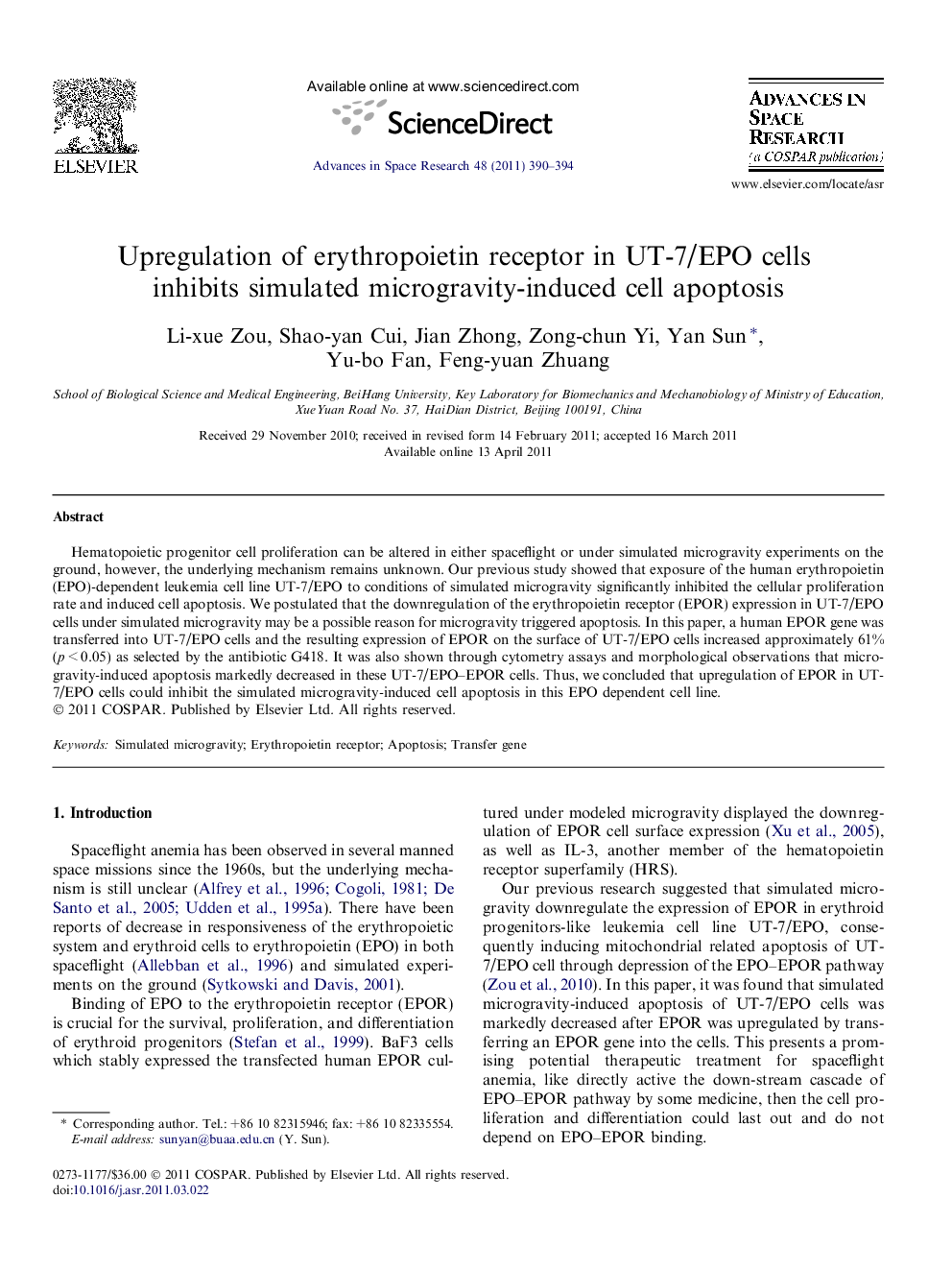| Article ID | Journal | Published Year | Pages | File Type |
|---|---|---|---|---|
| 1765932 | Advances in Space Research | 2011 | 5 Pages |
Hematopoietic progenitor cell proliferation can be altered in either spaceflight or under simulated microgravity experiments on the ground, however, the underlying mechanism remains unknown. Our previous study showed that exposure of the human erythropoietin (EPO)-dependent leukemia cell line UT-7/EPO to conditions of simulated microgravity significantly inhibited the cellular proliferation rate and induced cell apoptosis. We postulated that the downregulation of the erythropoietin receptor (EPOR) expression in UT-7/EPO cells under simulated microgravity may be a possible reason for microgravity triggered apoptosis. In this paper, a human EPOR gene was transferred into UT-7/EPO cells and the resulting expression of EPOR on the surface of UT-7/EPO cells increased approximately 61% (p < 0.05) as selected by the antibiotic G418. It was also shown through cytometry assays and morphological observations that microgravity-induced apoptosis markedly decreased in these UT-7/EPO–EPOR cells. Thus, we concluded that upregulation of EPOR in UT-7/EPO cells could inhibit the simulated microgravity-induced cell apoptosis in this EPO dependent cell line.
